What does the world's strictest exam actually look like in society?
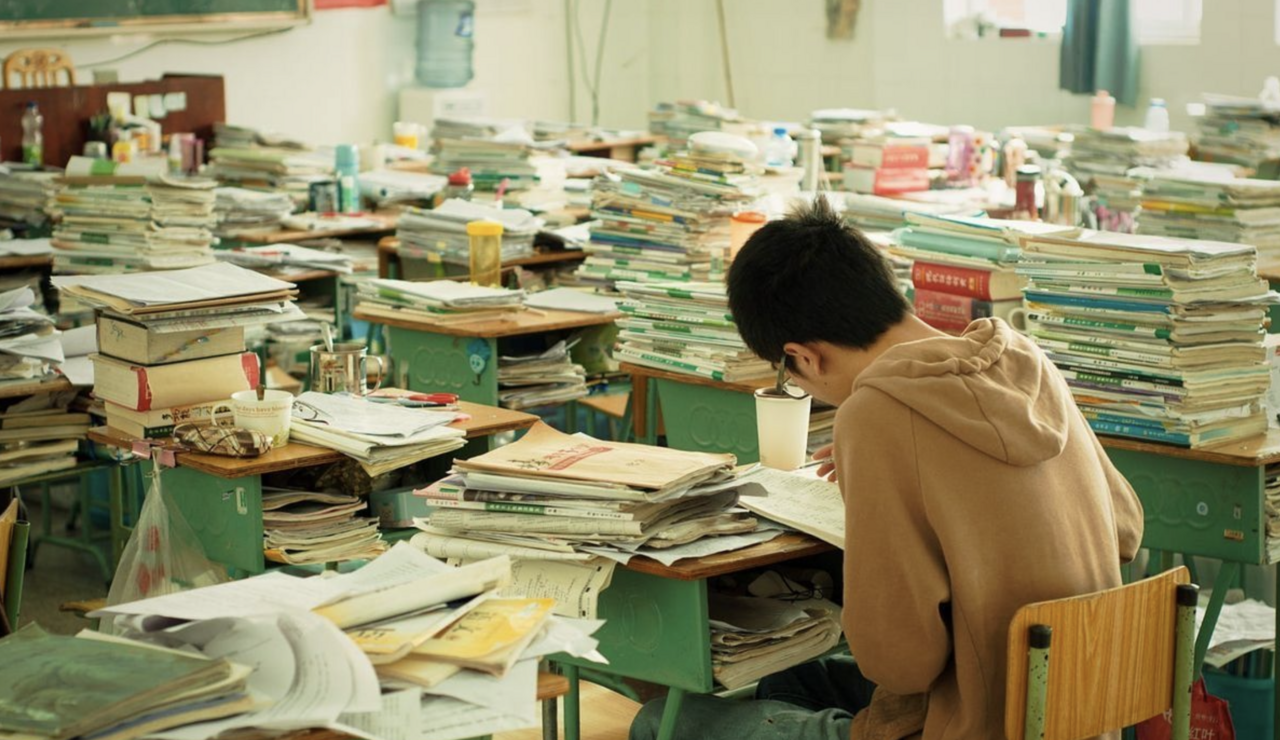
One of the questions I frequently encounter is, "Where are you from?" and "Where do you identify most with?" These questions often make me reflect on the concept of belonging and how I don't feel a strong affiliation with a particular country. I believe that this has been due to the everchanging education systems that I received growing up. This diverse background has shaped my perspective and understanding of the world. Learning many languages throughout my life depending on the geographic areas I lived in has taught me the importance of education, as I realised that no matter how many languages one speaks, education is the true international language. It is universally accepted and serves as the foundation of all life and the source of knowledge. Achieving this global understanding requires international dialogue that connects people from different parts of the world, allowing us to learn from each other. My research aims to foster this cross-cultural communication by providing an insight into the gaokao system, considered as the world's most gruelling and challenging university entrance examination.
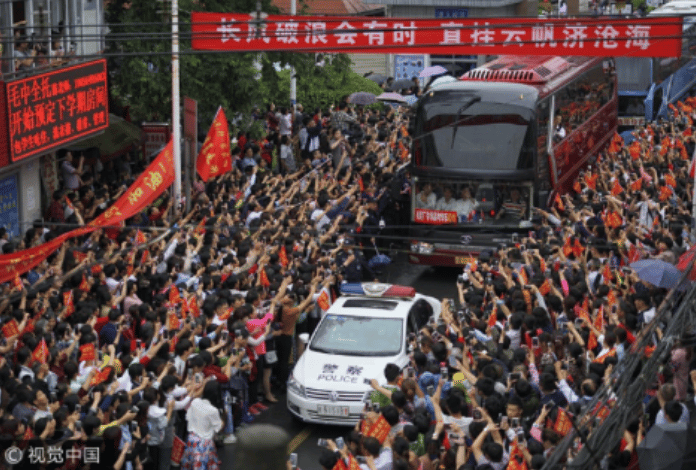
There is no other event that has such a powerful impact than Gaokao: the societal landscape in China completely comes to a hiatus during the most pivotal periods in people's lives. This profound impact on the Chinese community is a socially accepted phenomenon, and all the population is willing to make changes to support students undertaking examinations. The profound sense of community in which an entire nation comes to a hiatus for a common goal is remarkable, illustrating how society can unite for a shared purpose. As a researcher, developing my own questions has sparked my curiosity, and I discovered that, through interviewing former gaokao students, everyone had a different story to tell: there is no simple explanation to describe the perception of gaokao, and the entirety of the success of the exam can also be affected by many factors, ranging from financial capabilities of the families to the region that they undertake the exam.
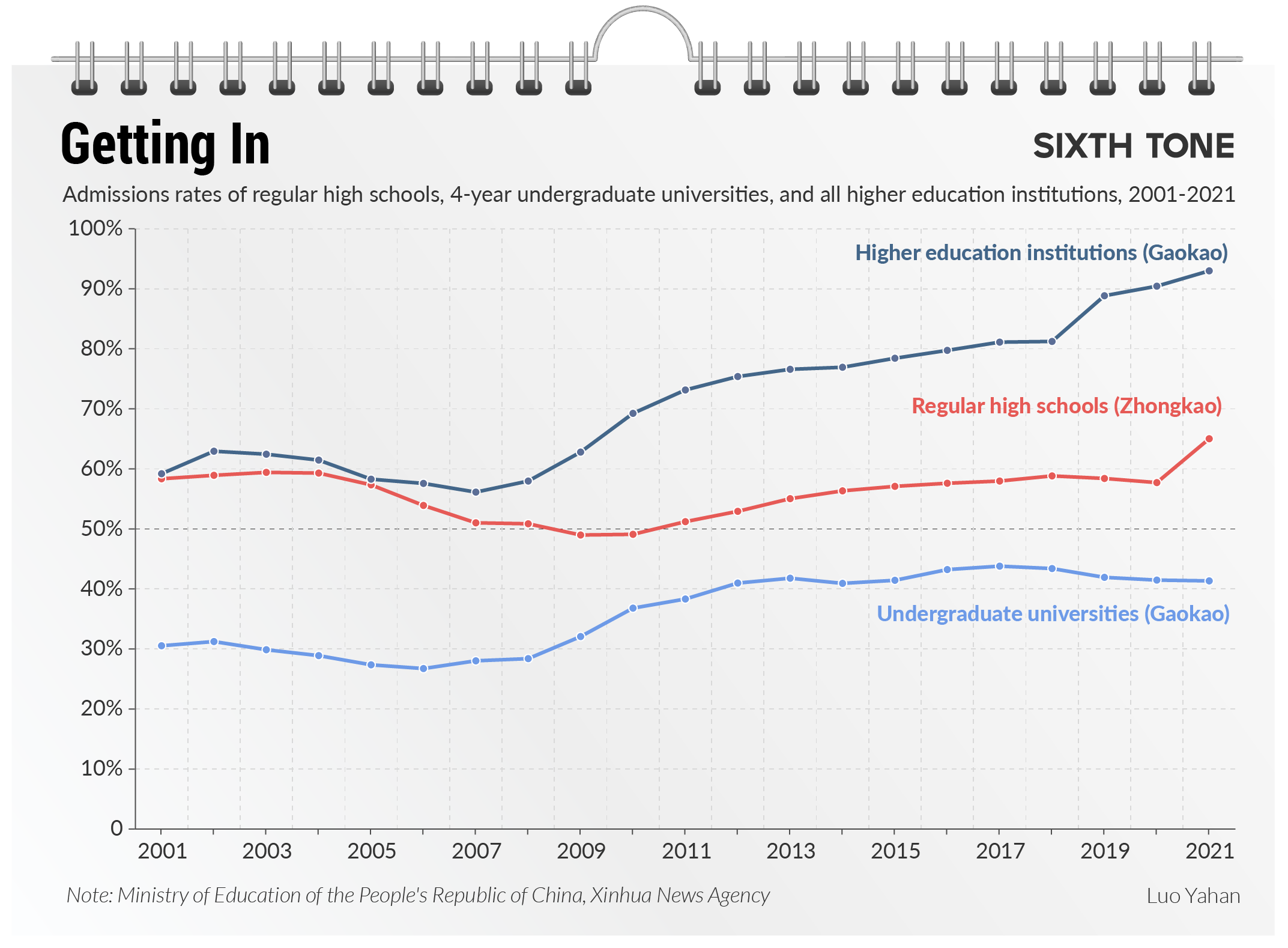 Academic competition is extremely high: China's top two universities, Peking University and Tsinghua University, only enrolled little over 6000 out of the 11.93 million students who participated in Gaokao in 2022.
Academic competition is extremely high: China's top two universities, Peking University and Tsinghua University, only enrolled little over 6000 out of the 11.93 million students who participated in Gaokao in 2022.
The reason behind the popularity of gaokao in China derives from the perception that this is the fairest examination of talent selection as it is based on merit: no matter your social background, as long as you work hard and score high grades, you can get into a good university and potentially change the course of your life. However, many questions raised as I delved deeper into this system: despite being an exam based on meritocracy, there are systematic disadvantages and flaws, as there are social and regional differences that marks the imbalances of gaokao, essentially, raising the question to what extent is gaokao actually a fair exam? Gaokao is not only a socially accepted milestone but also a deeply ingrained belief system, viewed as a gateway to transforming lives and opening up new opportunities. However, to what extent is this true? Does an exam really determine their whole life ahead? Interestingly enough, my research revealed that despite the harsh methods and rigorous teaching, most students who I have interviewed, did not express opposition towards this educational system. Of course, they disagreed on some aspects, but overall, they did resonate with the outcomes and results of this examination. On the contrary to what I had expected, 90% of the interviewees expressed that they would not change anything about this exam, even when the process of preparing for this was the toughest time of their youths.
The process of interviews made me realize the importance of empathy, as every student has lived varied experiences during gaokao, making me appreciate the integrity that is within research and therefore combine secondary data with primary data to achieve a realistic and unbiased report. Through the experience that I have gathered through Laidlaw, I have practiced my discipline with my time management skills; the element of individual research led me to keep myself accountable. Equally important it has taught me to be kind to myself; for example, breaking major tasks to smaller feasible ones and rewarding myself when I achieve a goal, but especially, not to criticize myself when I feel like I underperformed.
Could you pass the Gaokao exam? Take this quiz to find out!
Take the GaokaoBloomberghttps://www.bloomberg.com › 20...
Image credits:
Can you crack this gaokao quiz?China Dailyhttp://show.chinadaily.com.cn › h...
https://www.sixthtone.com/news/1013176
https://i.pinimg.com/originals/51/c4/63/51c463aee46393796eb74493f15db7ab.jpg

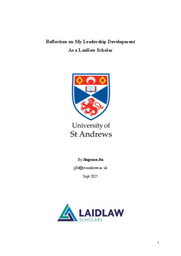

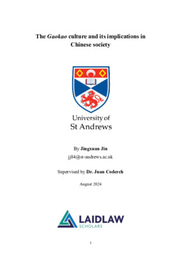
Please sign in
If you are a registered user on Laidlaw Scholars Network, please sign in
Great work Jing!
Many thanks Celia!